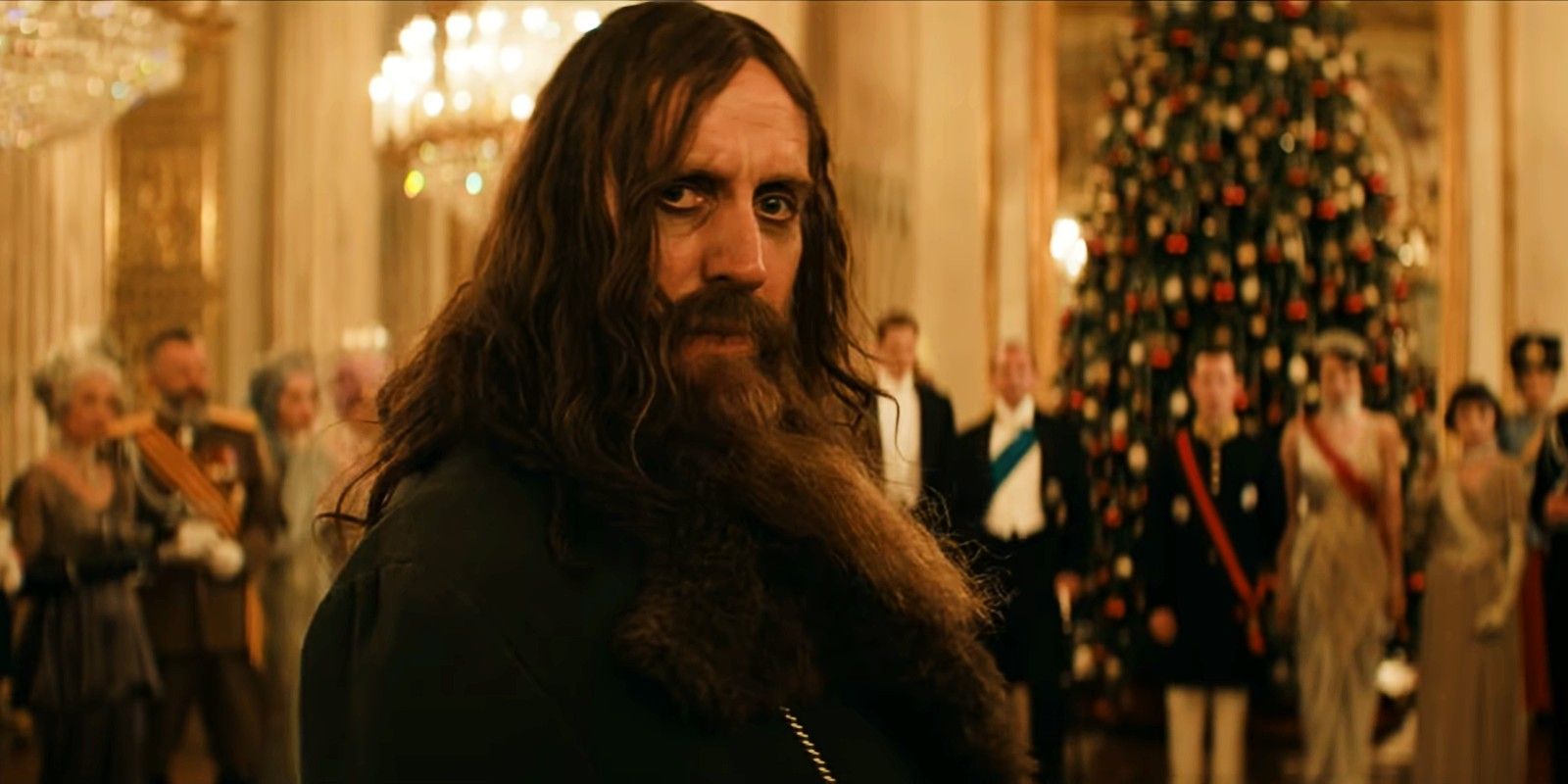Warning: This article contains SPOILERS for The King’s Man
While The King’s Man had the potential to reach the satirical off-the-wall nature of the Kingsman films, its first mistake was not making Rhys Ifans’ Rasputin the main villain. Matthew Vaughn’s The King’s Man has received mixed reviews from critics and audiences alike, with many citing its failures as an uneven and confused tone, deviation from the spy genre, and an uncompelling villain. While the film failed to capture the satirical tone of the better-ranked original Kingsman movies, one memorable, yet minor, villainous character miraculously achieved the franchise’s notably outrageous sentiments.
Aside from deviating in tone, The King’s Man also strayed from the Kingsman’s formula of making its key villain a main character, whose vile strategies are seen outside of the Kingsman organization’s point of view. This new entry slightly leans into this through a few scenes that cut to The Shepherd’s vile agents meeting at an isolated mountain in Scotland. The villain’s face is concealed until his final battle with Ralph Fiennes’ Duke Orlando, where he is revealed to be the British Captain Morton. Morton had recruited a group of powerful and malicious agents around the world to orchestrate The King’s Man’s version of World War I, including Russia’s real-life mystic Grigori Rasputin.
The King’s Man largely played as an action war movie rather than a spy thriller, with very few moments calling back to the humorous vein of the original Kingsman films. The only particularly ridiculous character in The King’s Man is Rasputin, whose repulsive actions, balletic style, and sexual mannerisms aligned much more with the qualities of Kingsman’s past villains. Sadly, Rasputin was an extremely minor foe for the Oxfords and early Kingsman organization, as he was defeated about halfway through the film in a climactic fight with Orlando, Conrad, Shola, and Polly. Considering Rasputin’s character has been one of the best-received aspects of The King’s Man, the prequel film would have greatly benefited by making him the protagonists’ main villain.

Although Matthew Goode’s Shepherd villain twist was surprising, it seemed drawn out and unimportant by the end of The King’s Man. Rather than keeping the main villain’s identity a secret, the film should have made Rasputin the core antagonist while situating Goode’s character as a secret agent in his rogue organization. Establishing Rasputin as a minor foe in The King’s Man was also a let-down for audiences after the film’s promotional materials had hyped up Ifans’ character as a key antagonistic character. Orlando and Rasputin’s big fight scene was teased in The King’s Man’s trailers, so audiences expected much more from the character. In reality, the already-shown fight scene was the only significant action from Rasputin in the film.
While the Shepherd villain was still a ridiculous foe by making him a Scottish cashmere goat farmer, he wasn’t nearly as engaging or outrageous as Rhys Ifans’ The King’s Man character. Instead, The Shepherd felt much more like a spy or war villain from a movie that takes itself seriously, rather than an entry in the Kingsman series. The scenes with Rasputin were the only real instances in which The King’s Man achieved the over-the-top goofy vein of previous villains like Samuel L. Jackson’s Richmond Valentine and Julianne Moore’s Poppy Adams. If The King’s Man had stuck to Rasputin as its main villain, it could have better achieved the satirical tones of the original Kingsman movies that the prequel was heavily criticized for lacking.




